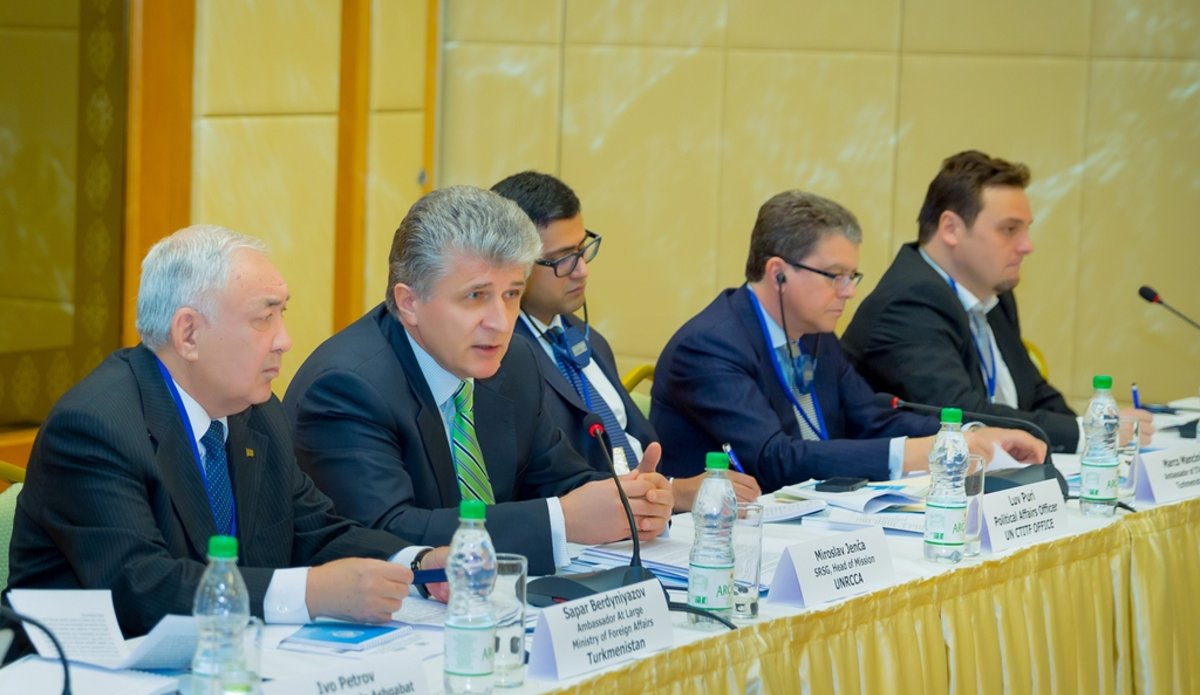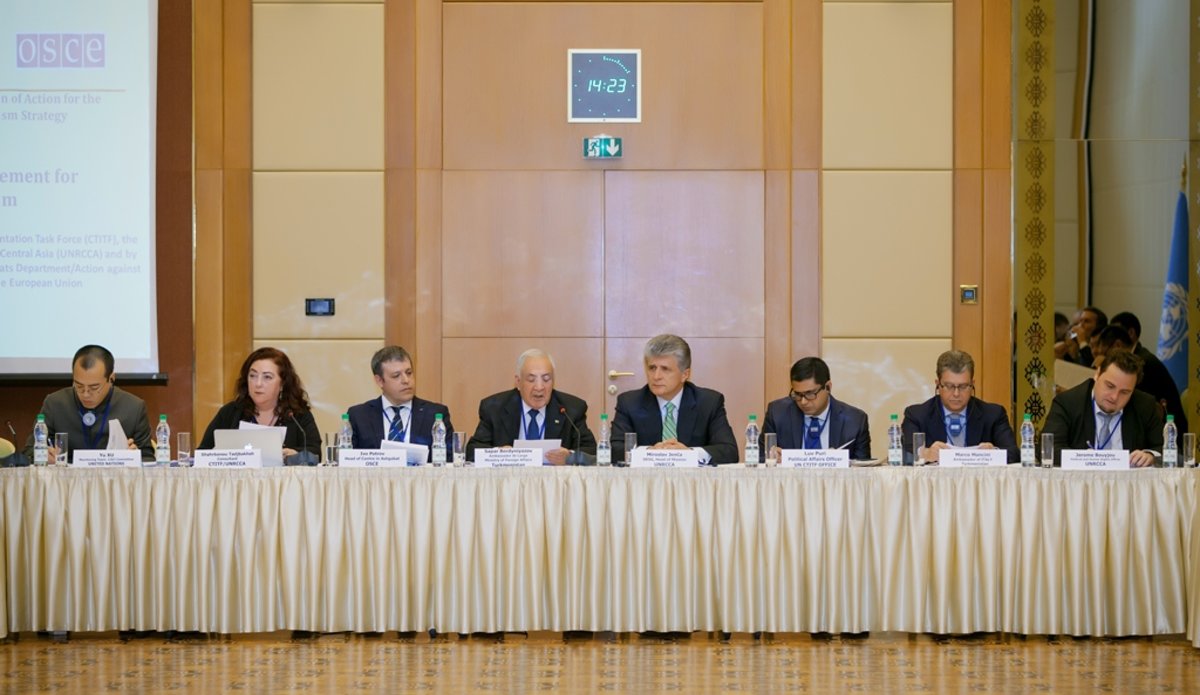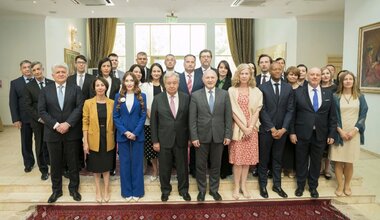Regional workshop "Border Security and Management for Countering Terrorism”
This event demonstrated the need for a comprehensive, multi-dimensional approach to fight terrorism, including at the border and for increased cross border and regional cooperation between Central Asian states. The Joint Plan of Action for Implementing the UN Global Counter Terrorism Strategy in Central Asia offers ample scope to achieve this”
Participants agreed that securing borders from the trespassing of terrorists goes beyond mere interdiction and border control and demands a complex approach: political will for cooperation, a developmental approach to involve the communities living in border areas as well as ensuring that interdiction and prevention measures for countering terrorism are conducted within the rule of law and by adhering to humanitarian principles.
Tools for surveillance, monitoring and control include a number of technical methods and equipment, as well as cooperation through joint patrol and joint exercises, but the human factor cannot be neglected in the prevention. Participants also reiterated the need to improve the information flow to facilitate their work: not only by gathering and populating relevant data bases, but also by sharing information in real time among relevant law enforcement agencies in different origin and destination countries.
“The conference provided an excellent platform to exchange information about the shared threats of transnational terrorism and about their common efforts to combat them”, said Ambassador Ivo Petrov, Head of the OSCE Centre in Ashgabat who co-organized the event with the UNRCCA.
The 2.5 day discussion included a training session where participants were introduced to the latest tools to assess risks and improve border security, bring them up to date on methods terrorists use to cross international borders, help them learn to mitigate the risk of illegal border crossings and train them on how to best use and contribute to existing databases
This was the third regional initiative within the second phase of the project “Towards a comprehensive implementation of the Joint Plan of Action for Central Asia under the United Nations Global Counter-Terrorism Strategy” implemented by UNRCCA and CTITF in Central Asia.
Within the first phase of this project, Central Asian states adopted In November 2011 a Joint Plan of Action (JPoA) for the Implementation of the United Nations Global Counter-Terrorism Strategy (GCTS) in Central Asia. On this occasion they stressed the need for more efforts “aimed at identifying measures to address border management problems in the region” They also resolved “to enhance national, regional and international cooperation, information exchange and joint training between the police, security agencies and border forces across the region.”
 UN
UN








